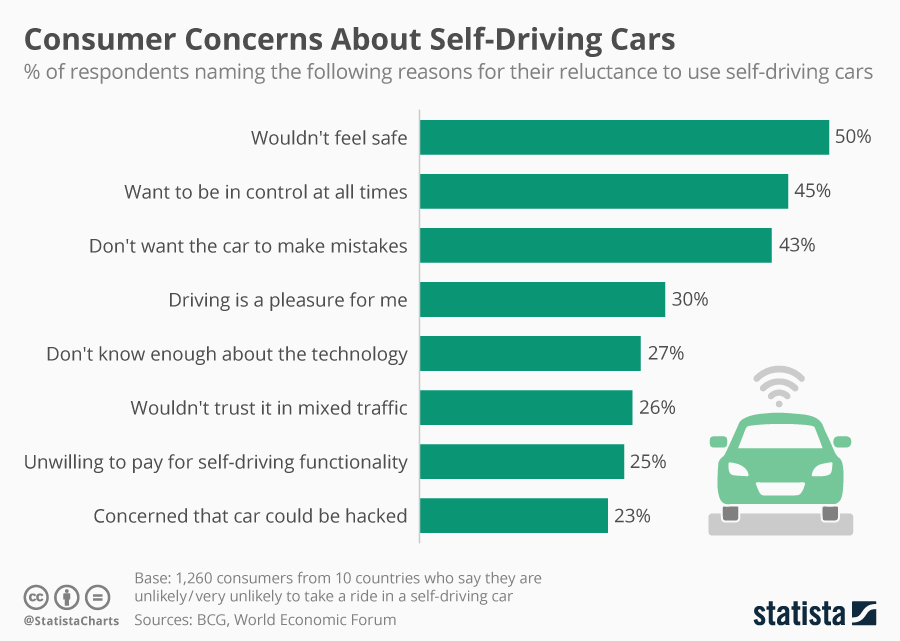While the progress of self-driving technology made a lot of positive headlines over the past few years, the past three months haven’t exactly been great for autonomous vehicles. In July, a driver of a Tesla car was killed in an accident while the Autopilot system was engaged, calling the viability of the car’s accident-avoidance system into question. Earlier this week, Chinese researchers claimed to have successfully hacked into a Tesla Model S, gaining remote control over several electronic features of the car, including the brakes.
While Tesla was quick to release a security patch fixing the loophole the researchers had exploited, the countless reports on the incident were a PR disaster for Tesla and self-driving technology nonetheless. As our chart illustrates, both incidents confirm the many reservations people still have against self-driving cars. According to a recent report, published by The Boston Consulting Group, 58 percent of the consumers surveyed across 10 countries would take a ride in a fully autonomous vehicle. 23 percent of the respondents don’t see themselves cease control to their vehicle though. And incidents like this week’s won’t help to convince them otherwise.


